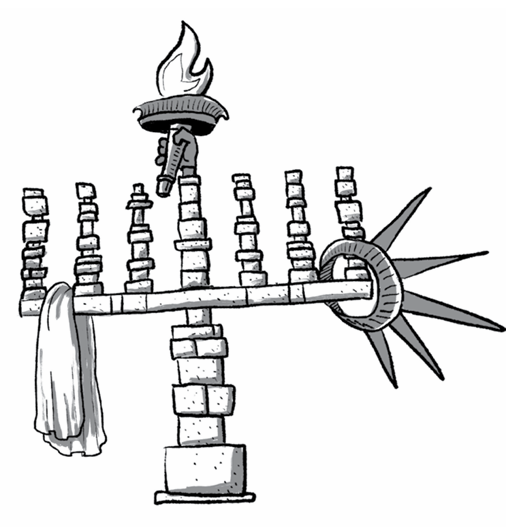Resources
Featured Holiday Resources See all holidays
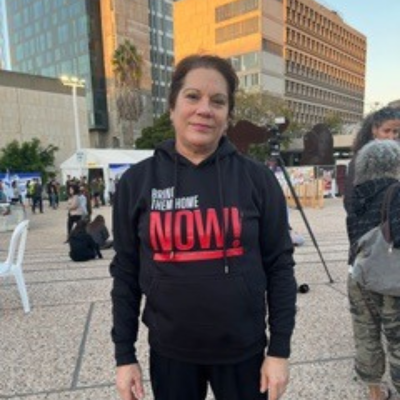
Tazria: Fear of Impurity
The words we speak may soothe our spiritual and emotional wounds when spoken in kindness, but speech has the potential to “sicken” us, as individuals and as a society when spoken in malice.
more

Tazria-Metzora: Tweet Others as You Would Want to be Tweeted
When the boogeyman of the mob is demystified, we have the humanity to look even our enemy in the face as a real, breathing human soul.
more
Connecting Parshat Tazria-Metzora to the Moment in Israel
A resource for clergy speaking about Israel at 75.
more
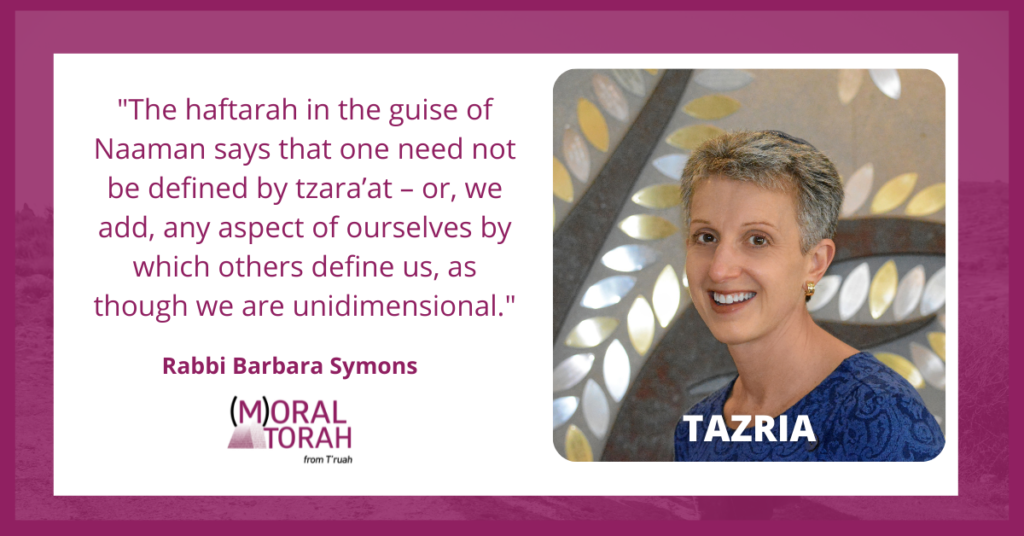
Lift Your Head
The haftarah in the guise of Naaman says that one need not be defined by tzara’at – or, we add, any aspect of ourselves by which others define us, as though we are unidimensional.
more
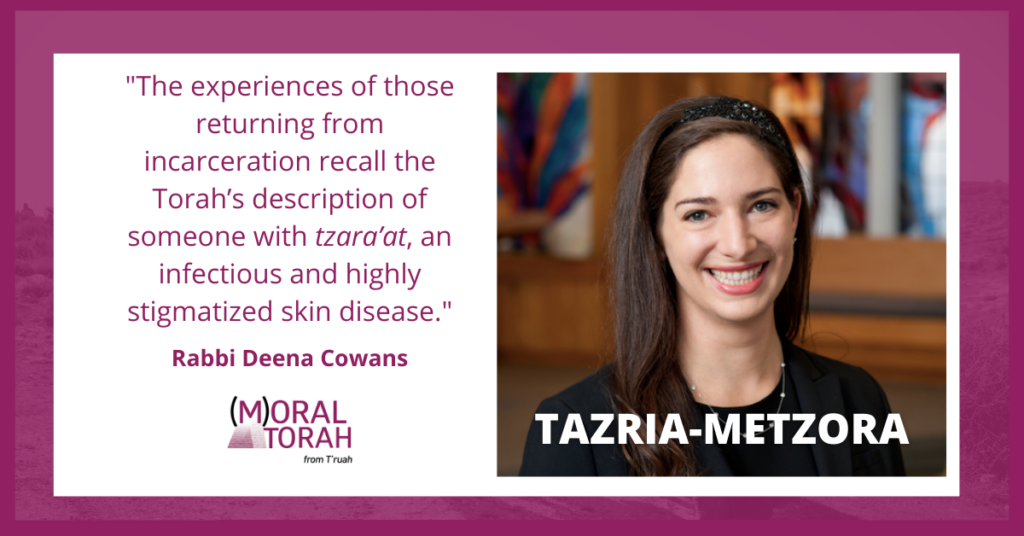
The Holy Task of Welcoming People Re-Entering Society
The experiences of those returning from incarceration recall the Torah’s description of someone with tzara’at, an infectious and highly stigmatized skin disease.
more

Sickness and Sin (Parshat Tazria)
Commentary on Parshat Tazria (Leviticus 12:1-13:59) In the world of Tazria, scaly, raw, and oozing pustules called tzara’at erupt on the skin and spread impurity through the camp. Those who suffer from this illness are isolated. The word used in Leviticus to describe this skin ailment is nega, which specifically means a plague sent by...
more
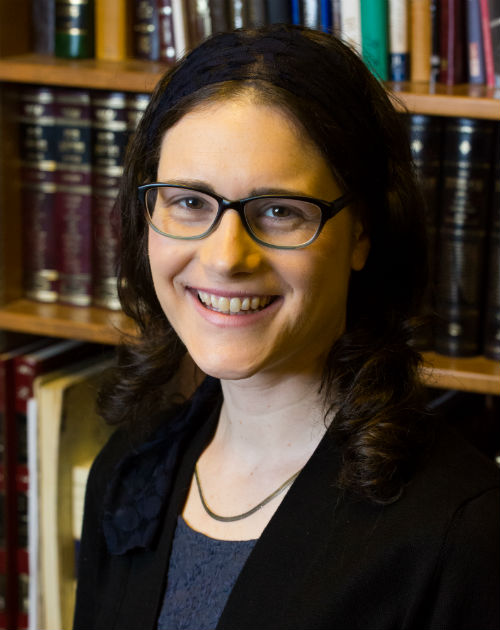
Birth, Visibility, and Justice
Ishah ki tazria. Parshat Tazria opens with laws related to a woman giving birth. The Torah’s terse account of birth screams out for interpretation, for filling in the space between these black letters with the many, and varied, experiences of birth. These stories are so necessary because people are often blind to experiences of birth,...
more

Sent Out of the Camp
This week’s parashah deals with a somewhat puzzling disease, called tzara’at, often translated as “leprosy.” As the Torah describes it, it’s an affliction that could appear on human skin, on clothes, or even infect houses. It’s not clear if the affliction is truly physical, as Leviticus seems to indicate, or if it’s a physical manifestation of...
more
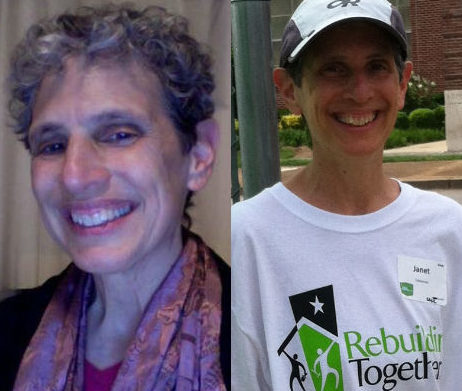
The Holiness of Dwelling
“I am a nester,” my friend said just weeks before Pesach, as we pondered the ramifications of her house having been dismantled for mold remediation. Her home is sacred space for her, a place set apart to replenish herself. Normally, she would have been cooking up a storm in her house. Instead, we baked a...
more


